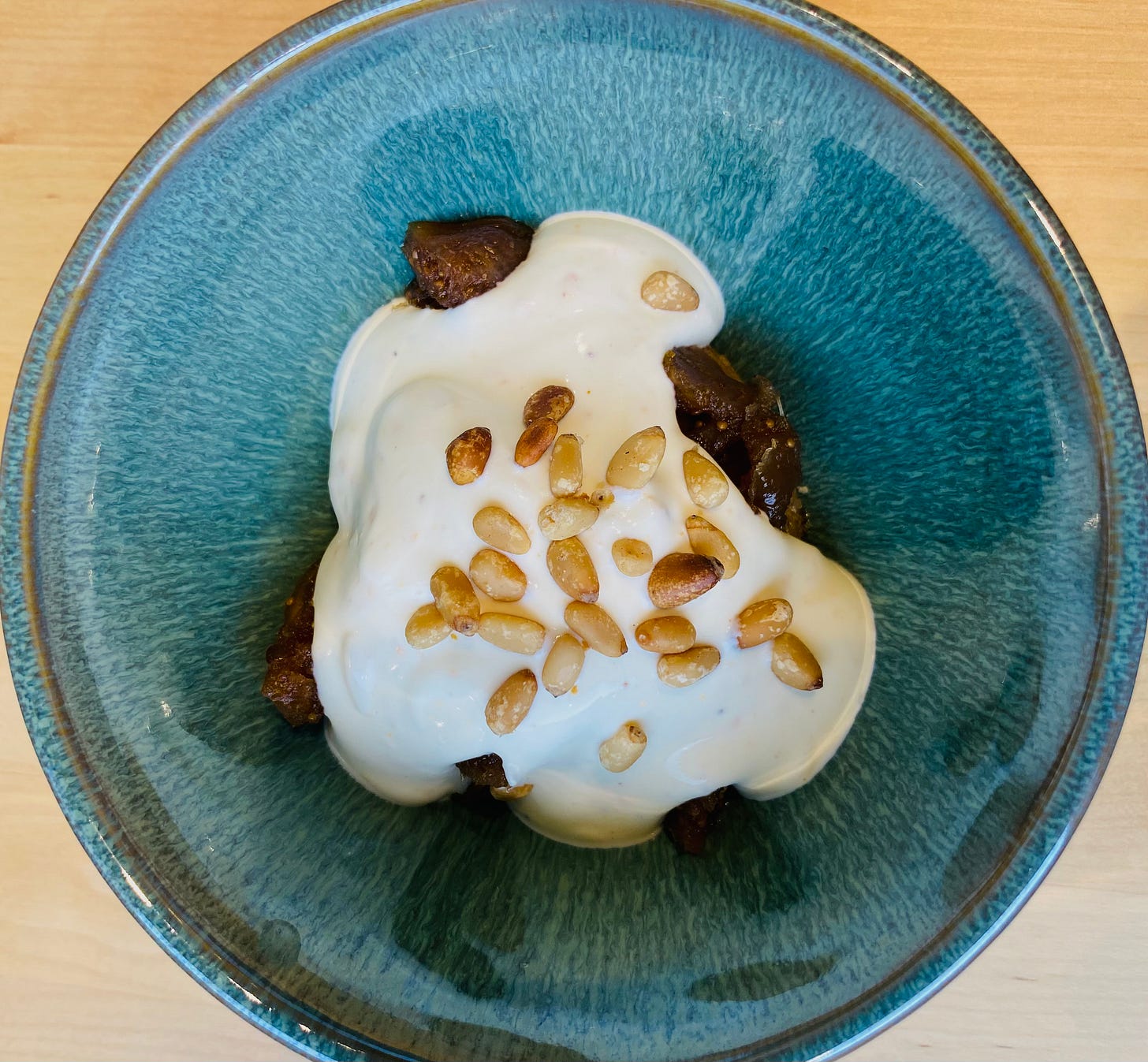Surprised by Scrooge
Some Thoughts on Reading A Christmas Carol
I’ll be taking the next two weeks off. Please enjoy this holiday post, and I’ll see you again in January. Happy everything, and God bless us, every one!
A Christmas Carol is rightly beloved, especially this time of year. Some families have an annual tradition of attending a live performance of A Christmas Carol or watching what for many of us is the definitive version of the story, The Muppet Christmas Carol.

Last week, my book club discussed A Christmas Carol. I highly recommend reading the book in addition to seeing a theater or movie version. It’s a quick, entertaining read, and Scrooge’s story is still surprisingly relevant to us today.
Scrooge Is Us
“Many can’t go [to the workhouse]; and many would rather die.”
“If they would rather die,” said Scrooge, “they had better do it, and decrease the surplus population.”
. . .
“It’s not my business,” Scrooge returned. “It’s enough for a man to understand his own business, and not to interfere with other people’s. Mine occupies me constantly” [8].1
My first surprise while reading the book was how familiar a type Scrooge is. Hopefully most of us are not so cold-hearted as to wish death on the “surplus population,” but I’ll bet that all of us have on occasion been too occupied with our own cares to feel able to alleviate the suffering of others. Scrooge is sarcastic, cynical, and convinced that everyone is trying to cheat him. Aren’t we all prone to similar suspicions from time to time? Aren’t some of us tempted by grumpy, aggrieved feelings about “emotional labor”? And yet when we cut ourselves off from people out of fear that they will get one over on us, we are the ones who lose. As Scrooge’s nephew, Fred, puts it,
“his offenses carry their own punishment. . . . The consequence of his taking a dislike to us, and not making merry with us, is, as I think, that he loses some pleasant moments, which could do him no harm” [58, 59].
Scrooge’s story is a warning about our relationships too. He and his fiancée part ways because Scrooge views her as an impediment to his ambition, reminding us of couples who break up—or of people who avoid dating and marriage altogether—because they are unwilling to compromise their career goals.
How did Scrooge become Scrooge? The same way it too often happens nowadays: Childhood trauma. We learn from the Ghost of Christmas Past that Scrooge’s family had once been rich and then lost all their money. As a young boy Scrooge was sent to a boarding school run by a cruel headmaster: “There was an earthy savor in the air, a chilly bareness in the place, which associated itself somehow with too much getting up by candle-light, and not too much to eat” (27). No wonder Scrooge clings to his money; he knows what it feels like to be desperately poor. As an adult, Scrooge reenacts his childhood trauma when he denies Bob Cratchit adequate heat and forces him to work brutal hours for insufficient pay.
While Scrooge’s conversion in theater and film versions can sometimes seem to come too quick, the book shows us that he is simply reverting to his true self. He once had a good heart but had allowed his fear of poverty to suppress his natural generosity. The sad truth is that adversity doesn’t always make us stronger, finer people. Sometimes it blights our souls. And so it would behoove us to build a society that doesn’t heap quite so much adversity on so many of us.
Gemütlichkeit
“[Fezziwig] has the power to render us happy or unhappy; to make our service light or burdensome; a pleasure or a toil. Say that his power lies in words and looks; in things so slight and insignificant that it is impossible to add and count them up: what then? The happiness he gives, is quite as great as if it cost a fortune” [35].
The German word “Gemütlichkeit” evokes cosiness, time together with loved ones, and delighting in the pleasures of the senses. My favorite scene in A Christmas Carol is the Fezziwigs’ holiday party, which features music, dancing, flirtation, laughter, and a page-long catalogue of the delicious foods on offer. In a word, Gemütlichkeit. As Scrooge discovers, it is a small matter for us to make one another happy. Why not take a page from Dickens’s book and throw a little party?
Mrs. Fezziwig’s Figgy Pudding
I invented this dessert for our book club. It was a hit! It’s easy and boozy and evokes old-fashioned figgy pudding like Mrs. Fezziwig may have served at her holiday party.2 The idea is similar to tiramisù, in that you soften cookies in sweet liqueur and generously cover them in cream. The recipe serves eight, but you can halve or double it depending on how many guests are coming.
Ingredients
For the macerated figs:
10-12 dried figs
a cinnamon stick
2 whole star anise
2 whole cardamom pods
about 1/2c (125ml) Grand Marnier
For the pudding:
8 Walker’s Shortbread 2”-round cookies (for gluten-free guests, substitute small meringues)
2c (500ml) crème fraîche
1T powdered sugar
zest from 1 orange
dash of nutmeg
1/2c pine nuts, toasted
Method
Macerate the figs: At least three days before your event, cut the figs into small pieces (I use a scissors) and place them in a glass bowl or jar. Add in the cinnamon stick, star anise, and cardamom pods and pour in the Grand Marnier to cover. (You may not need the full half-cup.) Cover the figs and store them at room temperature, stirring at least once a day.
Just before you assemble the puddings, mix together the crème fraîche, powdered sugar, orange zest, and nutmeg.
At least two hours before your party, assemble the puddings: Lay one shortbread cookie in each bowl. Spoon some figs over each cookie, along with a spoonful or so of the liquid. You want enough liquid to soften the cookies. Ladle about 1/4c of the crème fraîche mixture over the figs and top each pudding with about 1T of pine nuts. Keep in the fridge until just before serving.
Surprised by Joy
“I am as light as a feather, I am as happy as an angel, I am as merry as a schoolboy! I am as giddy as a drunken man! A merry Christmas to everybody! A happy New Year to all the world! Hallo here! Whoop! Hallo!” [83].
One of the most beautiful and powerful films I have ever seen is After Life, by Hirozaku Kore-Eda. The story takes place in a kind of limbo, where the recently dead must choose a happy and meaningful memory before passing into eternity. They will inhabit the memory they choose forever. Readers, what is the memory you would choose? Just take a moment to think about it, and I’ll tell you mine below the break.
One warm summer evening, just before sunset, our whole family was in our back yard. It was the golden hour and everything was glowing with soft light. Our dog, Lynn, had swiped a fallen apple and was tearing around at top speed, apple in her mouth, breath huffing in time to her leaps. My husband and the kids were chasing after her while I watched, and we all were laughing and cheering Lynn on. It was a lovely, ordinary evening together.
Hustle culture tells us that the most important moments in life are our public achievements, when we win money and status. At the opening of A Christmas Carol this is what Scrooge values most too; he sacrificed the love of his life so that he could amass wealth, after all. But we know in our hearts that worldly success is a false idol. It is clarifying to think about the memories we would choose to take with us into the afterlife, and about the times we have felt pure joy. I am guessing that your favorite memory is a moment shared with loved ones, just like mine is. As David Brooks reminds us,
Happiness usually involves a victory for the self. Joy tends to involve the transcendence of self. Happiness comes from accomplishments. Joy comes when your heart is in another. . . . Joy is the present that life gives you as you give away your gifts.
Scrooge feels real joy only when he turns away from himself and toward other people. It’s the same for all of us. When we understand that outward measures of success are of course nice but also not the only thing in life, and when we embrace one another with openness, authenticity, and generosity, we experience the joy of what really matters. There may be people who will express disappointment in us because we aren’t aggressive go-getters, or who will sneer at how uncool we are. Let them! While they scoff, we will be making merry with the Cratchits, the Fezziwigs, and Nephew Fred, and our own hearts will be laughing.
Some people laughed to see the alteration in him, but he let them laugh, and little heeded them; for he was wise enough to know that nothing ever happened on this globe, for good, at which some people did not have their fill of laughter in the outset. . . . His own heart laughed: and that was quite enough for him [89–90].
How about you, readers? Have you ever read A Christmas Carol? What is your favorite part of the story? And did you choose a memory? Please share your thoughts in the comments!
The Tidbit
This lively carol3 is what I imagine Scrooge was humming as he dashed out of his house to buy the big prize turkey in Poulterer’s shop for Bob Cratchit and his family. Let’s all sing along!
Some citations: All quotations from A Christmas Carol come from a free edition I found online. “Surprised by Joy” is the title of a poem by William Wordsworth and a memoir by C. S. Lewis.
If you have guests who don’t drink, here’s an alcohol-free version of the dessert: When you are assembling the puddings, substitute regular dried figs for the macerated figs and a spoonful or two of pure maple syrup for the Grand Marnier syrup.
The second verse cracks me up: “And i-o-i-o-i-o”?! Did the lyricist just run out of ideas there?




So is Gemütlichkeit sort of like hygge? Why do we not have a word like this in English? Feels like a cultural failing 😁